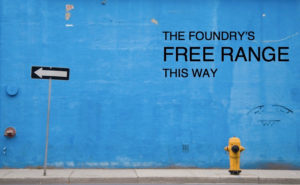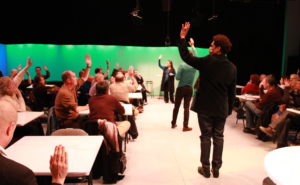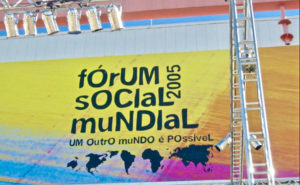
The Foundry, with Ma-Yi Theater and Hip-Hop Theater Festival, organized a national delegation of 25 artists to go to Nairobi, Kenya for the 7th World Social Forum. Sixty-five thousand people from 132 countries hosted 1000+ workshops, panels, roundtables and other events to exchange, propose, debate, reflect on and forge new alliances in the creation of a more democratic and just world. The WSF is the largest assembly of civil society in the world, and in history; it makes space annually for growing progressive, effective, global conversation in which ‘another world’ is being imagined and built. As artists, we are committed to actively participating in this progressive discourse, and building a newly oriented relevancy for art and artists in the fabric of our future.
January 20-25th: Nairobi, Kenya
The Delegation
Carla Ching
Kia Corthron
David Dower
Savitree Durkee
Laura Flanders
Kamilah Forbes
Sunder Ganglani
Idris Goodwin
Chinaka Hodge
Melanie Joseph
Bonnie Metzgar
Ralph Pena
Daniel Rech
Reverend Billy
Rebecca Rugg
Katy Savard
Alisa Solomon
Elizabeth Streb
Lloyd Suh
Talvin Wilks
Tracey Scott Wilson
Kelly Zen-Yie Tsai
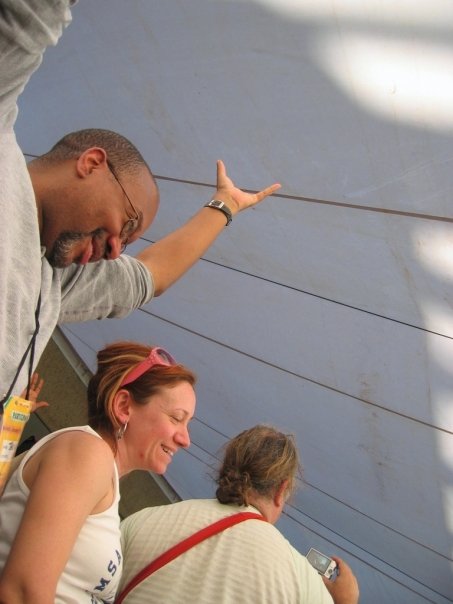
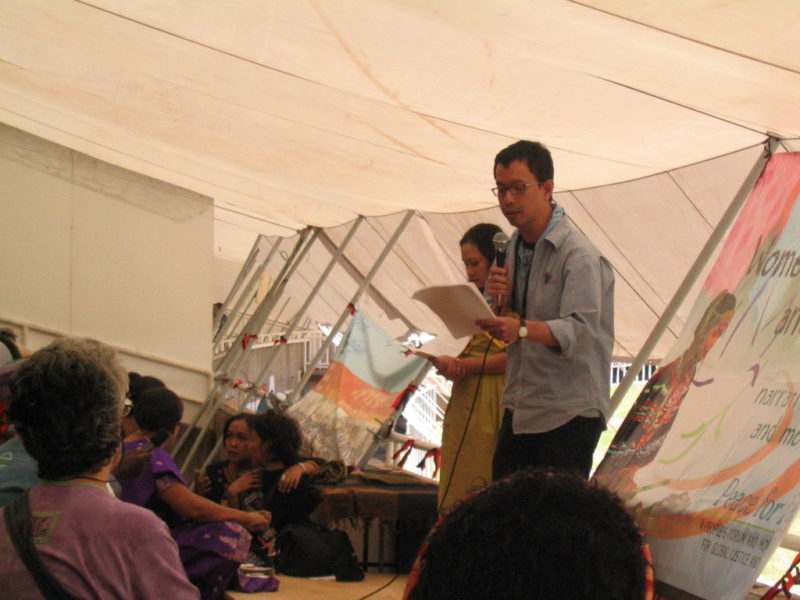
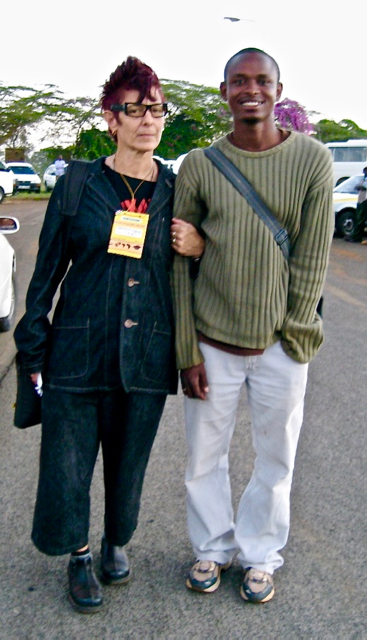

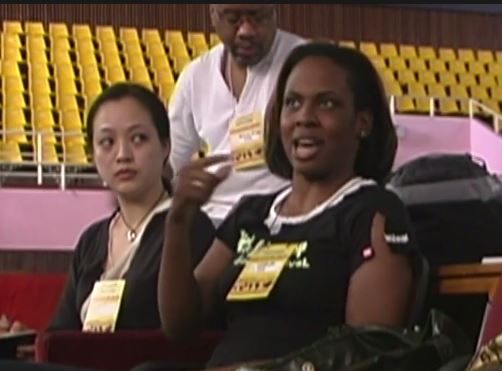
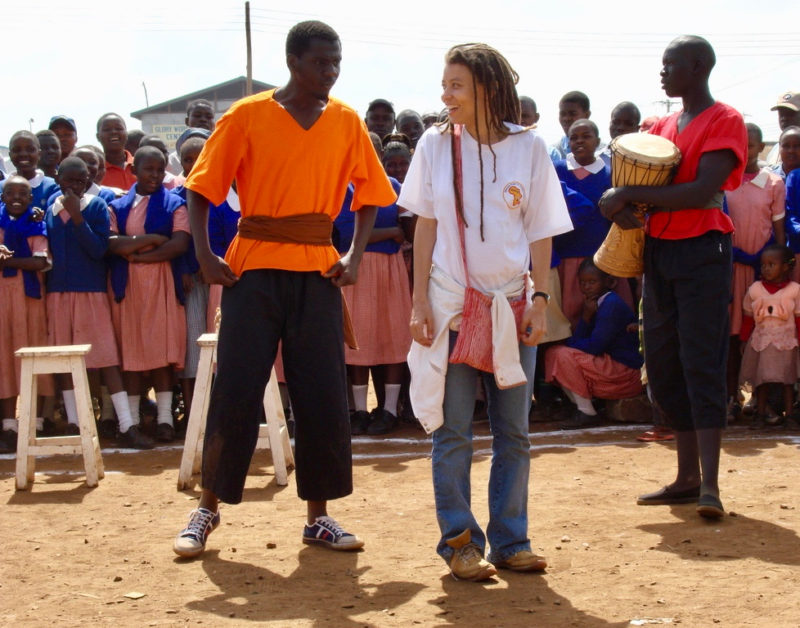
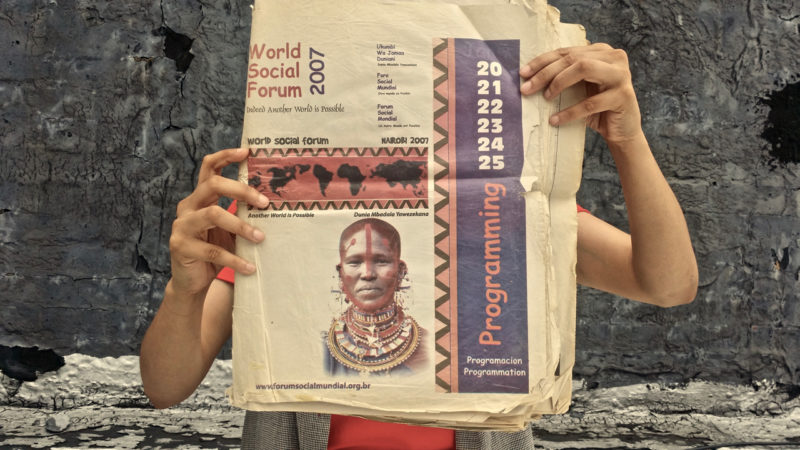
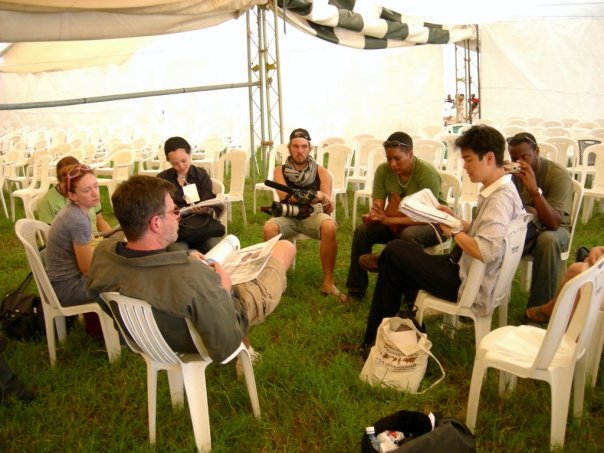
About The WSF
The World Social Forum, begun in 2001, annually brings together several thousand people from the growing global justice movement who come to exchange, refine and propose alternative systemic practices and strategies, and inform each other about other movements from across the world that are speaking to and alongside their particular issues. The WSF provides an open space for big ideas and proposals to be imagined and strategized. The intention is to make it possible for people to think together on a globalized basis about the connection between local and international issues and to make room – in greater depth each year – for the creation of innovative alternatives to the dominant “common sense” of free-market culture or neoliberalism that positions the protection of capital over people.
The Forum is itself a process, whose objective is to allow for horizontal activism, for an ecology of approaches to building “another world” and to make room for a global civil society to emerge as a new political actor, autonomous of political parties or governments.
In addition to the annual global forum, the WSF has prompted the organizing of hundreds of local, regional, national social forums across the world organized under the WSF principles and methodology. The goal of these multiple, simultaneous forums is to decentralize and allow far more people to engage in the open forum atmosphere of the WSF process. All of the various social forums in this mold include international attendees and are in no way specifically focused on the problems of a single region of country. The first social forum in the U.S. was The Boston Social Forum in July 2004. And in July 2007, the very first national US Social Forum will be hosted in Atlanta.
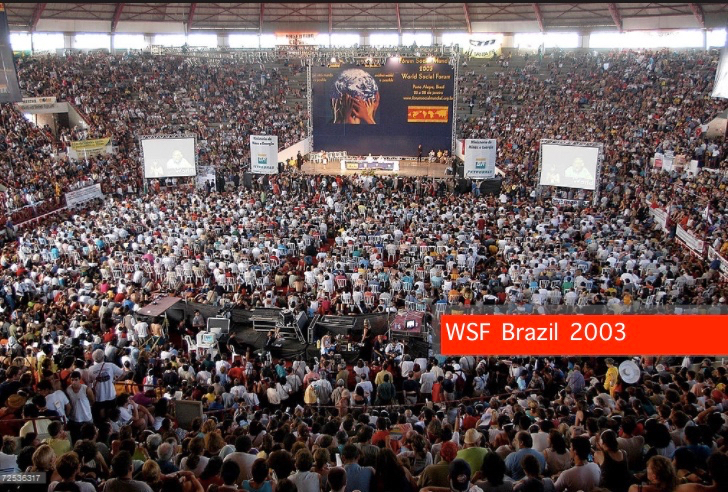
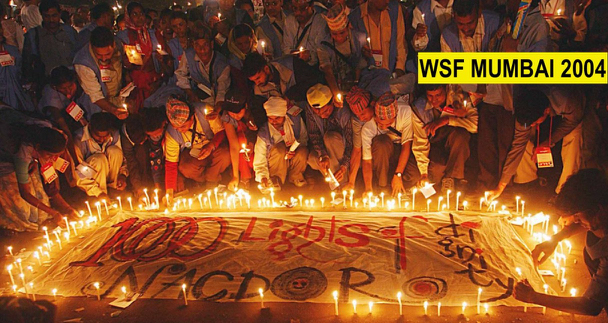
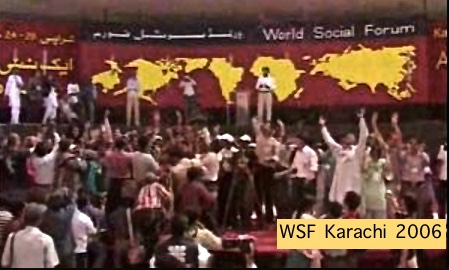
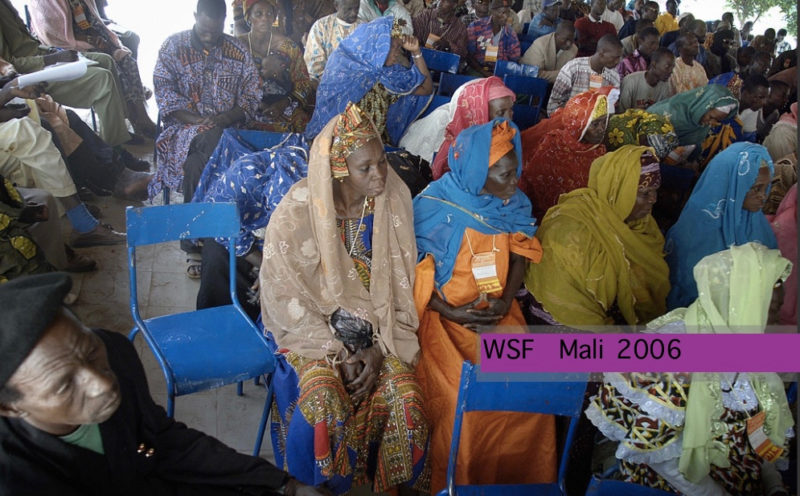
Report Backs
American Theatre Magazine convened WSF delegates Elizabeth Streb, Lloyd Suh, Talvin Wilks, Tracy Scott Wilson & Melanie Joseph to discuss their experience.
read full transcript
Streb: “I always think that if you’re in a discipline where you’re actually interested in inventing vocabulary — rather than forwarding or interpreting a tradition, or dealing with the 36 stories that seem to exist in the world. And you want to figure out, ‘well, there must be new stories to tell, I can’t believe there’s only 36’…I think part of it has to do with the discovery, allowing yourself to be able to not know, for a long long time, just not know… And that’s correlative to this whole World Social Forum process.
Joseph: what I find radical about this [political approach], why I find a particular relationship between artists and its process, is that it provides the opportunity — ratifies almost — the presence of contemplation, of taking time to process, to come up with new language, to meet people happenstantially, to meander, as Elizabeth would say … that within its Charter of Principles is the protection of itself as a process that invites greater and greater numbers to participate. Some will be movement builders who will use it as an opportunity to build direct action; for some it provides an opening for radical possibility.
Articles
Public Dialogue: April 14, 2007
The Foundry, Ma-yi Theatre and Hip Hop Theatre Festival hosted a dialogue open to the public as a report back to the wider community about the WSF and the place for artists in its ongoing global process. This event was also held to explore building a delegation of artists to attend the first US Social Forum to held in Atlanta in July.
Our special guest for the evening was Madhusree Dutta, a Indian filmmaker and theatre director, who was a principal organizer of arts and culture inclusion at the 2004 WSF in Mumbai, which included 8 stages, 3 exhibition halls (5000 sq m), 2 1000-seat cinemas, as well as roving guerilla performances and pop up shows that took over various WSF meeting spaces. The Mumbai Forum was directly responsible for the incredible inclusion of art and artists in the following year’s WSF in Brazil.
Madhusree Dutta
VIDEO
Film of our WSF delegation: made by Brazilian filmmaker, Felipe Ribeiro








